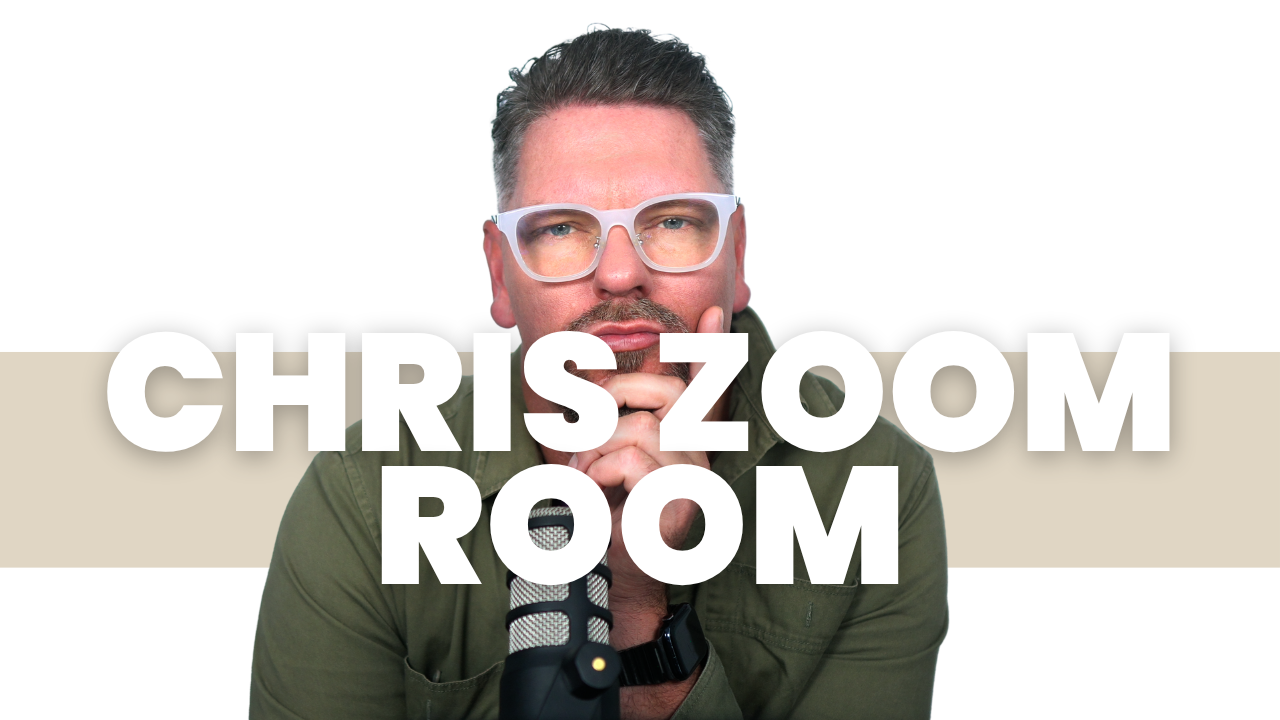Healing From Loneliness, Depression & Alcohol with Belinda Stark
Oct 21, 2025
Listen to the full episode.
At Chris and Filly Functional Medicine, we understand that alcohol dependency and depression rarely exist in isolation—they often represent symptoms of deeper underlying patterns that require comprehensive healing approaches. Through our work in holistic health and integrative medicine, we've discovered that addressing substance use issues requires understanding the root causes that drive these behaviours, rather than simply focusing on the symptoms themselves.
Understanding the Connection Between Life Trauma and Alcohol Dependency
The journey into alcohol dependency often begins as a coping mechanism for overwhelming life circumstances and emotional pain. At Chris and Filly Functional Medicine, our experience with burnout functional medicine has shown how major life stressors—including postnatal depression, cancer diagnoses, relationship breakdowns, and chronic health issues—can create the perfect storm for developing unhealthy coping patterns.
When individuals face multiple traumatic events within a short timeframe, their nervous systems can become overwhelmed, leading to a desperate search for relief from emotional and physical pain. Alcohol often provides temporary numbing from these intense experiences, creating patterns that can persist long after the original crisis has passed.
Our approach to natural healing recognises that these coping mechanisms develop for valid reasons—they represent the individual's best attempt to manage overwhelming circumstances with the resources available at the time. Understanding this context becomes crucial for developing compassionate and effective treatment approaches.
The Hidden Root Causes Beneath Surface Symptoms
Through our work in alternative medicine and root cause medicine, we've observed that alcohol dependency often masks deeper issues related to loneliness, disconnection, and unresolved emotional pain. The drinking behaviour becomes a symptom of these underlying patterns rather than the primary problem itself.
The Ending Body Burnout Method addresses these deeper layers because we've discovered that lasting recovery requires healing the original wounds that created the need for numbing behaviours. This might include addressing childhood trauma, relationship patterns, identity issues, or chronic stress that has never been properly processed.
Our naturopathic medicine approach recognises that depression and alcohol dependency often share common root causes, including nutrient deficiencies, hormonal imbalances, and nervous system dysregulation that affect mood, energy, and emotional resilience. Addressing these physical factors alongside the emotional and psychological aspects creates more comprehensive healing.
The Cascade Effect of Multiple Life Stressors
When individuals experience multiple significant stressors within a compressed timeframe—such as postnatal depression, cancer diagnosis, and divorce—the cumulative impact can overwhelm their coping capacity. Our work in holistic wellness has shown how these cascading stressors create perfect conditions for developing maladaptive coping strategies.
The nervous system, designed to handle acute stress followed by recovery periods, can become chronically activated when stressors pile up without adequate time for processing and integration. This chronic activation often leads to symptoms including depression, anxiety, sleep disturbances, and the desperate search for relief that alcohol can temporarily provide.
Understanding this cascade effect helps explain why some individuals develop alcohol dependency while others facing similar stressors do not. The timing, intensity, and individual capacity for processing stress all play crucial roles in determining outcomes.
The Role of Loneliness in Addiction Patterns
Loneliness represents one of the most significant yet overlooked factors in alcohol dependency and depression. Our work in healing from within has revealed how chronic loneliness creates profound stress on both mental and physical health, contributing to inflammation, immune dysfunction, and mood disorders.
At Chris and Filly Functional Medicine, we've observed how loneliness often drives individuals to seek connection through substances when human connection feels unavailable or unsafe. Alcohol can temporarily ease the pain of isolation while simultaneously creating barriers to authentic connection, perpetuating cycles of loneliness and dependency.
The healing process often involves addressing both the practical aspects of building genuine connections and the internal barriers that prevent individuals from feeling worthy of love and belonging. This work requires patience and compassion as individuals learn to trust both themselves and others again.
Understanding Grey Area Drinking Patterns
Many individuals struggle with what's termed "grey area drinking"—patterns of alcohol use that fall between social drinking and obvious addiction but still create negative impacts on health and wellbeing. Our approach to mind body medicine recognises that these patterns often develop gradually as coping mechanisms for chronic stress, depression, or life dissatisfaction.
Grey area drinking can be particularly challenging to address because it doesn't fit conventional definitions of alcoholism, yet it significantly impacts quality of life, relationships, and physical health. These patterns often involve using alcohol to manage emotions, cope with stress, or fill voids in life satisfaction.
The recognition that drinking has become problematic often occurs gradually, as individuals notice that alcohol is no longer enhancing their lives but rather creating additional problems or preventing them from addressing underlying issues that need attention.
The Physical Impact of Alcohol on Mental Health
From a whole body health perspective, alcohol consumption significantly impacts mental health through multiple pathways. Alcohol affects neurotransmitter production, disrupts sleep patterns, depletes essential nutrients, and creates inflammation that can worsen depression and anxiety symptoms.
Our functional nutrition approach recognises that alcohol metabolism requires significant nutritional resources, often depleting B vitamins, magnesium, and other nutrients essential for mood regulation and nervous system function. This depletion can create cycles where alcohol use worsens the very symptoms it's being used to treat.
Additionally, alcohol's impact on sleep quality affects the body's ability to process emotions and stress, creating conditions that perpetuate both depression and the perceived need for alcohol as a coping mechanism.
The Healing Journey and Career Transformation
The process of healing from alcohol dependency and depression often catalyses profound personal transformation that extends far beyond addressing the original symptoms. Our experience with personalised medicine has shown how individuals who successfully navigate this healing journey often discover new purposes and directions for their lives.
The decision to completely pivot careers and become an alcohol mindset coach represents a common pattern we observe—individuals who have successfully healed often feel called to help others facing similar challenges. This transformation from personal healing to service represents one of the most beautiful aspects of the recovery journey.
This career shift often reflects a deeper alignment between personal values and professional expression that may have been missing in previous work. The authenticity that emerges from healing personal struggles often translates into powerful capacity to help others navigate similar challenges.
Breaking Free from Alcohol Addiction Patterns
The process of breaking free from alcohol dependency involves multiple components that must be addressed simultaneously for lasting success. Our approach to health optimisation includes attention to physical detoxification, emotional healing, relationship repair, and lifestyle restructuring that supports long-term sobriety.
Physical healing involves supporting the body's natural detoxification processes, replenishing depleted nutrients, and addressing any underlying health issues that may have contributed to or resulted from alcohol use. This foundation creates the stability necessary for emotional and psychological healing work.
Emotional healing often involves processing the original traumas or stressors that led to alcohol use, developing new coping strategies for managing difficult emotions, and rebuilding self-worth and identity beyond the drinking behaviour.
The Importance of Professional Support and Community
Recovery from alcohol dependency rarely occurs in isolation—it typically requires professional support and community connection to provide the guidance, accountability, and encouragement necessary for lasting change. Our holistic health approach recognises the crucial role of therapeutic relationships in the healing process.
Working with qualified professionals who understand both the physical and emotional aspects of alcohol dependency provides the comprehensive support necessary for addressing all dimensions of the problem. This might include medical supervision for detoxification, therapy for emotional healing, and coaching for developing new life patterns.
Community support, whether through formal programs or informal networks, provides the connection and belonging that often replace the role alcohol played in an individual's life. These relationships become crucial for maintaining sobriety and continuing personal growth.
Creating Sustainable Recovery and Thriving
True recovery from alcohol dependency involves more than simply stopping drinking—it requires creating a life so fulfilling and aligned that alcohol no longer serves any perceived purpose. Our approach to preventative health includes developing sustainable practices that support continued growth and resilience.
This often involves discovering new sources of joy, connection, and meaning that provide natural highs and stress relief. Physical activities, creative pursuits, spiritual practices, and meaningful relationships all contribute to creating a life that feels worth living without artificial enhancement.
The development of healthy coping strategies for managing stress, difficult emotions, and life challenges becomes crucial for maintaining long-term sobriety. These skills often prove valuable far beyond addiction recovery, enhancing overall life satisfaction and resilience.
Ready to explore how addressing the root causes of alcohol dependency and depression could transform your relationship with substances and create lasting healing? We invite you to discover how our comprehensive approach to addiction recovery could help you understand and heal the underlying patterns that maintain these challenging cycles. Book a Discovery Call with us to learn more about our integrative methodology, or take the first step through our Connect the Dots consultation to begin understanding how underlying health imbalances might be contributing to your struggles with substances and mood.
Remember, addiction and depression are symptoms of deeper imbalances that can be healed with the right support and approach. When you're ready to explore this comprehensive path to recovery and thriving, we're here to guide you on your journey to genuine freedom and vibrant health.
Listen to the full episode.
Filipa Bellette is Co-Founder of multi award-winning health practice Chris & Filly Functional Medicine. She is an accredited Clinical Nutritionist, Functional Medicine Practitioner, Coach & Trauma Therapist. She is also a PhD Scholar, author & regularly featured in the media, such as nine.com.au, Forbes and Body+Soul.
Together with her husband Chris Bellette, Filipa has worked with over 2,000+ burned-out clients in the past combined 25+ years. Their practice is best known for ending body burnout (for good!) in “busy” people with energy, mood & gut issues. They were recently awarded as the Tasmanian State Winner & National Finalist for the Telstra Best of Business Awards 2022, as well as Winner for the Australian Women’s Small Business Champion Awards 2022.
Filipa’s own passion for helping “busy” people have more energy, productivity and connection, came from her own personal experience of body burnout, after juggling the demands of business, family, and her failing health.
Stay connected with news and updates!
Join our mailing list to receive the latest news and updates from our team.
Don't worry, your information will not be shared.
We hate SPAM. We will never sell your information, for any reason.



